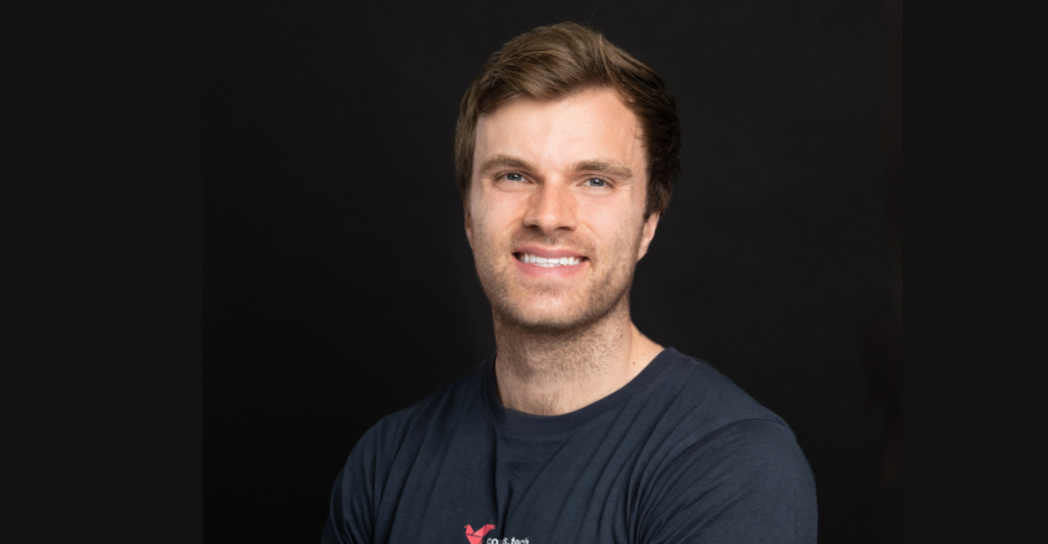
- Programme studied: Global Master's in Management
- Year of Graduation: 2017
- LinkedIn
After studying MSc Management at LSE, Ties joined Google. In the five and a half years he worked there, he went from sales to strategy to BI and eventually overseeing all EMEA reporting and BI for the programmatic ads business (>$XXbn per year). Ties was also a Data Science facilitator at Google and contributed to Google Climate Science as an analyst to monitor air quality in several European cities.
In 2023, he joined Dawn Capital, a London-based VC, to build their Data function from scratch. Ties also co-founded Cognitas.tech, where they teach SQL, Python & Data Viz in a live instructor-led setting for individuals and teams. Fun fact: Cognitas’ content is licensed to the LSE!
Tell us about your career journey since graduating from LSE? And how has the programme you studied helped your career since you graduated?
The MiM was my first experience in a truly multicultural environment. Currently, my 20-person team counts 15 different nationalities. My experience at the LSE was instrumental in preparing me for this.
In the MiM, you also learn to juggle your quant class in the morning and your marketing class in the afternoon. Learning to switch between different ways of using your brain is key when working in a dynamic corporate setting.
How did your time at LSE influence your career journey?
The main thing I found eye-opening about LSE is the quality of the students and their ambition. People take interview preparation and networking very seriously, which was not the case at all in my undergrad in the Netherlands. Learning to work hard and prepare properly for interviews and other key meetings has drastically changed my career trajectory. The stronger your peer set, the stronger you’ll become.
What has been the biggest challenge you have faced in your career, and what have you learned from it?
When I joined Google, I was very eager to excel and landed my first promotion very quickly. I also moved to an analyst role earlier than normal, reporting directly to someone who had an annual revenue target of around ten billion dollars. I felt pretty invincible (and a bit smug). I then moved into a new team, in a deprioritized part of the business, and had five different managers in two years.
Unsurprisingly, my last promotion came slower than hoped. The disappointment made me reflect on myself much more than any other professional experience. I’ve learned to not be as defined by my work, and a large slice of humble pie. You need hard work and luck to do well.
What motivated you to start your company Cognitas.tech?
Everyone is talking about the power of data, and technologies (from PowerBI to Snowflake) improved in lockstep. Data skills are as important now as Excel was 15 years ago, but there is no good, classroom setting offering to teach these skills. I don’t know anyone who learned Spanish well with only the DuoLingo app, but somehow you’ll learn machine learning through Datacamp videos without a live instructor?
Even at Google, there were no instructor-led, fun, and relevant courses available for SQL or Python, so I founded Cognitas.tech. We also try to teach data skills - which are pretty dry - in a less boring way, using instructors from top tech companies like Google or Salesforce. It’s unique to get taught data skills, with <10 people on a video meeting, by people with excellent credentials. This allows people to ask any questions they have, which explains why our drop-out rates are negligible (vs 95%+ at Coursera).
What is one piece of advice you would share with current students or recent graduates looking to follow in your career footsteps?
I did two IBD internships with Deutsche Bank prior to LSE and really struggled with the hours. After month four, I was getting stress eczema on my legs. After my second internship, I did my master’s at LSE and made a choice to avoid careers with particularly grueling hours. I’d always viewed myself as a tough cookie, so admitting that I wasn’t built for these super-demanding industries was tough. For context, in undergrad I rowed 10 times a week next to studying and ran a stats tutoring business that did well. At Google, I scaled a business to 100K+ EBITDA in two years whilst working full-time.
Still, I handled banking (where much of the work is reactive) very poorly physically.
My advice would be this: consulting and banking are great ways to start your career for many, but far from the only ones. Just because in many industries you don’t work grueling hours, does not mean that you’ll have a mediocre career.
Secondly, read Happiness By Design by Professor Paul Dolan at the LSE. It changed my life.
Share with us your fondest memory of the Department of Management.
My happiest moment in the MiM was arriving in London at one of the first social events in August and hearing about the calibre of classmates and the dreams that everyone had. It was energising to be in a big city, surrounded by so many people that wanted to achieve great things.
If you would like to be our Alum of the Month or if you would like to nominate a Department of Management alumni, please email dom.alumni@lse.ac.uk.